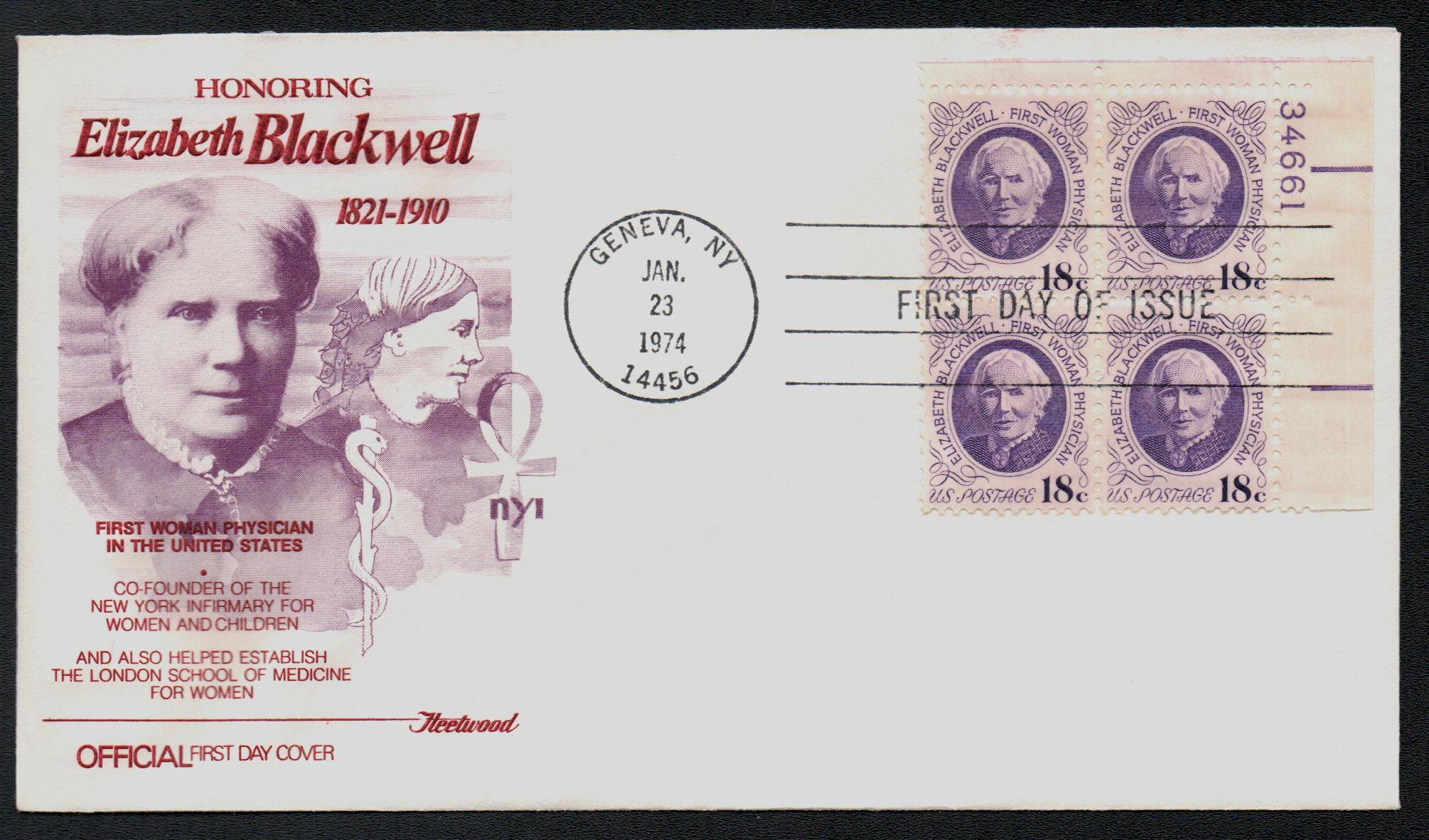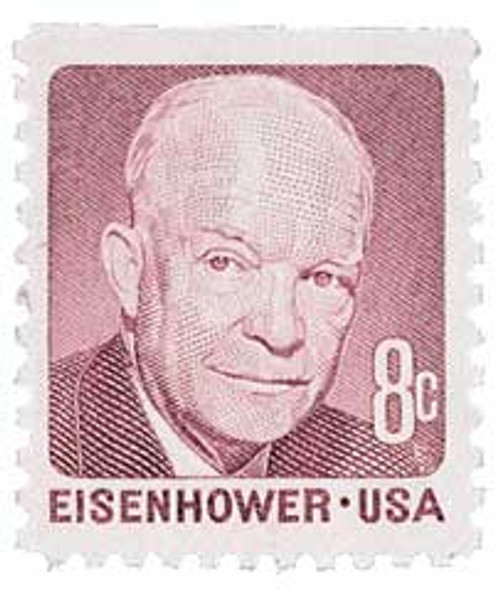
# 1399 FDC - 1974 18c Dr. Elizabeth Blackwell
America's First Female Doctor

On January 23, 1849, Elizabeth Blackwell became the first woman in America to graduate from medical school.
Blackwell was born on February 3, 1821, in Bristol, Gloucestershire, England. Her family moved to America in 1832, living first in New York and later Cincinnati, Ohio. As a young woman, Blackwell opened a school with her sisters to help raise money for her family, though it eventually closed.
Blackwell was very interested in education and reform and spent time studying art, attending lectures, writing short stories, and visiting the services of a variety of different religions. She was also interested in women's rights and the political campaign of William Henry Harrison.
Initially, Blackwell had no interest in medicine, stating that she hated everything connected with the body, and could not bear the sight of a medical book the very thought of dwelling on the physical structure of the body and its various ailments filled me with disgust. However, when Blackwell was in her mid-20s, a female friend had a terminal illness but was too embarrassed to go to a male doctor. Blackwell's friend told her that she believed she would have recovered if she had a female doctor.

Blackwell was moved by her friend's situation and became inspired to become a doctor. She spoke to family friends that were doctors, but they all told her it was impossible because it was too expensive and women weren't allowed to become doctors. These challenges only encouraged her more. Blackwell recruited the help of her physician friends, who let her study with them for a year. She then applied to every medical school in New York and Philadelphia. Everyone turned her down.
One of the schools Blackwell applied to, Geneva Medical College (now Hobart and William Smith Colleges) decided to let the students vote to decide her fate there. The school was convinced that the all-male student body would surely vote against her. However, the students saw it as an opportunity to play a joke on the school and voted unanimously in favor of admitting Blackwell.
She may have been admitted as a joke, but Blackwell took the opportunity seriously and excelled at Geneva. Her hard work paid off on January 23, 1849, when she graduated first in her class.
Blackwell went on to work and train further in London and Paris, though she lost sight in her left eye and could no longer work as a surgeon. She then opened an infirmary in New York City, helping some of the city's most in-need people. Blackwell's practice focused on women and children.
Blackwell knew that sanitary conditions were important, especially in times of war. So in 1861, she helped to establish the U.S. Sanitary Commission. Also during the Civil War, Blackwell and her sister Emily helped train nurses for the battlefields. Blackwell helped found two medical colleges for women before her death on May 31, 1910.
America's First Female Doctor

On January 23, 1849, Elizabeth Blackwell became the first woman in America to graduate from medical school.
Blackwell was born on February 3, 1821, in Bristol, Gloucestershire, England. Her family moved to America in 1832, living first in New York and later Cincinnati, Ohio. As a young woman, Blackwell opened a school with her sisters to help raise money for her family, though it eventually closed.
Blackwell was very interested in education and reform and spent time studying art, attending lectures, writing short stories, and visiting the services of a variety of different religions. She was also interested in women's rights and the political campaign of William Henry Harrison.
Initially, Blackwell had no interest in medicine, stating that she hated everything connected with the body, and could not bear the sight of a medical book the very thought of dwelling on the physical structure of the body and its various ailments filled me with disgust. However, when Blackwell was in her mid-20s, a female friend had a terminal illness but was too embarrassed to go to a male doctor. Blackwell's friend told her that she believed she would have recovered if she had a female doctor.

Blackwell was moved by her friend's situation and became inspired to become a doctor. She spoke to family friends that were doctors, but they all told her it was impossible because it was too expensive and women weren't allowed to become doctors. These challenges only encouraged her more. Blackwell recruited the help of her physician friends, who let her study with them for a year. She then applied to every medical school in New York and Philadelphia. Everyone turned her down.
One of the schools Blackwell applied to, Geneva Medical College (now Hobart and William Smith Colleges) decided to let the students vote to decide her fate there. The school was convinced that the all-male student body would surely vote against her. However, the students saw it as an opportunity to play a joke on the school and voted unanimously in favor of admitting Blackwell.
She may have been admitted as a joke, but Blackwell took the opportunity seriously and excelled at Geneva. Her hard work paid off on January 23, 1849, when she graduated first in her class.
Blackwell went on to work and train further in London and Paris, though she lost sight in her left eye and could no longer work as a surgeon. She then opened an infirmary in New York City, helping some of the city's most in-need people. Blackwell's practice focused on women and children.
Blackwell knew that sanitary conditions were important, especially in times of war. So in 1861, she helped to establish the U.S. Sanitary Commission. Also during the Civil War, Blackwell and her sister Emily helped train nurses for the battlefields. Blackwell helped found two medical colleges for women before her death on May 31, 1910.














